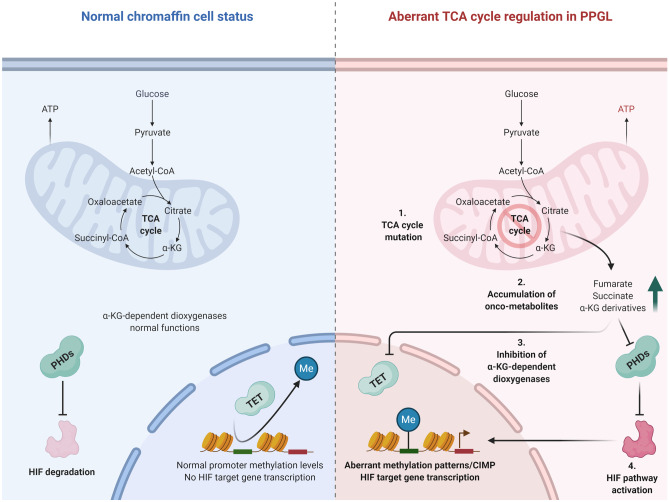Fig. 5.
Cellular consequences of an aberrant tricarboxylic acid (TCA) cycle in PPGLs. In the normal cell state, the TCA cycle operates at normal capacity, generating ATP and keeping extra-mitochondrial levels of onco-metabolites (succinate, fumarate, and α-ketoglutarate (α-KG)) derivative levels low. Thus, the diverse group of α-KG dependent dioxygenase enzymes (including PHD enzymes targeting the HIF oncoprotein for degradation as well as TET proteins responsible for de-methylating the genome) is functional. Upon aberrant TCA cycle regulation (via mutations in genes encoding enzymes catalyzing key steps of the TCA cycle), accumulation of extra-mitochondrial succinate, fumarate and α-KG metabolites will inhibit dioxygenase function, leading to impaired PHD and TET enzyme activity—thereby promoting HIF pathway activation and genomic hypermethylation

